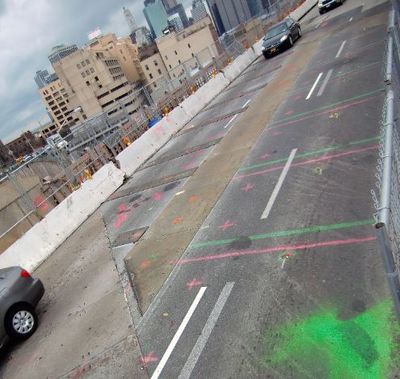
Research
The professorship for Participatory Technology Design is based at the Munich Center for Technology in Society and the TUM Department of Architecture, where is part of the Research focus area Urban and Landscape Transformations.
Its research focus lies on the current transformations of urban environments. Two observations are here crucial:
The first is that one of the most significant technological challenges for contemporary collectives lies in the design, maintenance and integration of urban infrastructures. If politics is understood as the making of decisions that are collectively binding, then infrastructures are thoroughly political not only because they allow for new forms of collective bonds and ways of live to emerge, but also because they might be impeding or blocking the existence of others.
The second observation is that the complexity of urban transformations makes traded understandings of participation obsolete. Infrastructural projects often involve variegated forms of expertise throughout the spectrum of the life, technical and social sciences, as well as new forms of citizen, activist and users’ expertise. Hence, we are particularly interested in understanding the current forms in which participation is being reshaped into different forms of collaboration with and between heterogeneous publics.
Teaching Areas
Taking into account the different interests, learning cultures and abilities of future architects and urban planners, on the one hand, and future STS scholars, on the other, is a major concern for this professorship, as well as an invitation for experimenting with teaching formats. We offer courses for architecture students only, for STS students only and courses, in which they can study together and learn from each other.
We have organised our teaching offer in six areas:
1. STS THEORY AND METHODS
Science and Technology Studies (STS) is a highly interdisciplinary research field, but it has developed a very specifc set of theoretical traditions, conceptual repertoires, analytical approaches and methodological tools. This teaching area introduces students into STS as an intellectual practice.
2. TECHNOSCIENCE AND THE CITY
Cities are made of multiple sociotechnical assemblages bringing together humans and non-humans, such as technologies, microbes, fuel or maps, in all sorts of ways for all sorts of purposes. Courses in this area introduce students to new theoretical approaches, conceptual repertoires and understandings of the urban, urbanity and urbanization that, inspired in science and technology studies, address the sociotechnical complexity of cities.
3. SOCIAL STUDIES OF DESIGN
Our contemporary world is populated by carefully designed objects, spaces, services and experiences. This teaching area is dedicated to in-detail analyses of design culture and its effects, paying attention to the practices of conception, marketization and use in order to understand the impact of these material devices in contemporary societies.
4. CITIZEN PARTICIPATION AND TECHNICAL DEMOCRACY
Calls for citizen participation have become central in planning and politics in the last decades. Courses in this area introduce students to a series of theoretical discussions, historical analyses, empirical examples, case studies and exploratory exercises addressing some key questions: What is the role and effect of the participatory devices created in those processes? How is citizenship and expertise imagined and practiced in these participatory exercises? What experimental forms of collaboration could be invented and for what purposes?
5. PROJECTS / COLLABORATIONS
Teaching at the Department of Architecture offers an indeed unique opportunity to develop applied and experimental projects with students and in collaboration with other colleagues. The aim of such projects and collaborations is to put STS insights to work in hands-on projects and engage in a two-way dialogue and learning process.
6. PhD WORKSHOPS
As part of our involvement in MCTS's PhD Programme in TechnoScienceStudies, we have been teaching different workshops and seminars searching to address conceptual and methodological issues for the training of STS students.